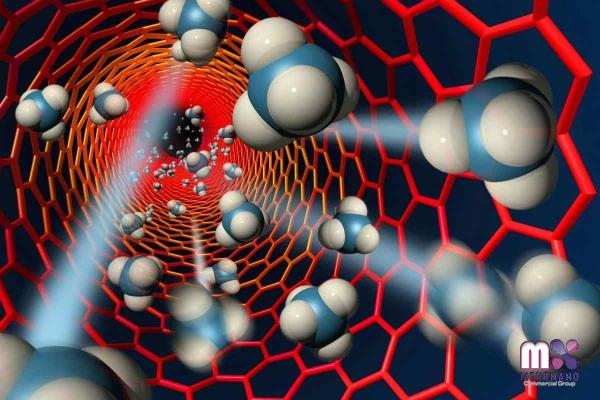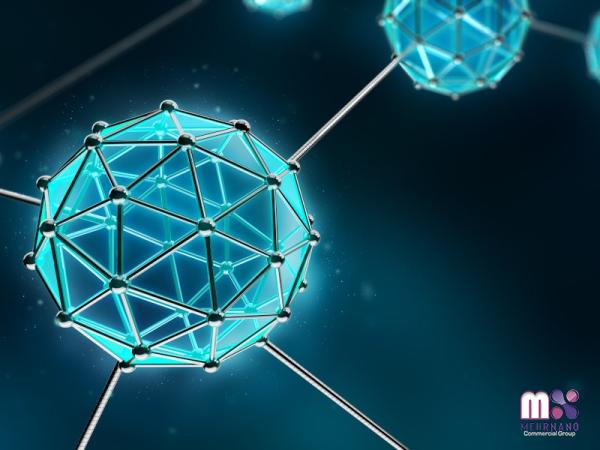Nanomaterials chemistry has emerged as a revolutionary field, bringing forth unrivaled opportunities for innovation across various industries. With the ability to engineer matter at the atomic and molecular scale, nanomaterials offer a plethora of unique properties and applications in areas such as energy storage, electronics, medicine, and manufacturing. In this article, we delve into the transformative power of nanomaterials chemistry and its implications for businesses worldwide. 1. Enhanced performance and efficiency: Nanomaterials have the potential to significantly enhance the performance and efficiency of products and processes. By manipulating materials at the nanoscale, businesses can develop materials with superior strength, conductivity, and catalytic properties. For instance, nanocomposites can improve the structural integrity of construction materials, while nanoparticulate catalysts boost energy efficiency and reduce the environmental impact of industrial processes.
.
 2. Advanced manufacturing techniques: Nanomaterials chemistry has opened up avenues for advanced manufacturing techniques, enabling businesses to create complex structures and miniaturized devices with incredible precision. Nanofabrication techniques, such as molecular self-assembly and lithography, allow for the production of nanoscale features on a large scale. This has significant implications for electronics, optics, and microfluidics, enabling the creation of ultra-small electronic components and novel sensors. 3. Sustainable solutions: In an era where sustainability is a key driver for businesses, nanomaterials chemistry provides a viable avenue for developing sustainable solutions. Nanotechnology can enable the production of energy-efficient devices, lightweight and durable materials, and water purification systems. Furthermore, nanomaterials can facilitate waste reduction and recycling by enabling the recovery of valuable resources from discarded products.
2. Advanced manufacturing techniques: Nanomaterials chemistry has opened up avenues for advanced manufacturing techniques, enabling businesses to create complex structures and miniaturized devices with incredible precision. Nanofabrication techniques, such as molecular self-assembly and lithography, allow for the production of nanoscale features on a large scale. This has significant implications for electronics, optics, and microfluidics, enabling the creation of ultra-small electronic components and novel sensors. 3. Sustainable solutions: In an era where sustainability is a key driver for businesses, nanomaterials chemistry provides a viable avenue for developing sustainable solutions. Nanotechnology can enable the production of energy-efficient devices, lightweight and durable materials, and water purification systems. Furthermore, nanomaterials can facilitate waste reduction and recycling by enabling the recovery of valuable resources from discarded products.
..
 4. Breakthroughs in healthcare: Nanomaterials chemistry has revolutionized the healthcare industry, offering promising breakthroughs in diagnostics, drug delivery systems, and regenerative medicine. Nanoparticles can serve as targeted drug carriers, delivering therapeutic agents directly to diseased cells, thereby minimizing side effects. Nanosensors can detect diseases at their earliest stages, allowing for early intervention. Additionally, nanomaterials can be employed for tissue engineering to create artificial organs and promote tissue regeneration. 5. Safer and efficient energy storage: The demand for safe and efficient energy storage continues to grow, and nanomaterials chemistry lies at the forefront of addressing these challenges.
4. Breakthroughs in healthcare: Nanomaterials chemistry has revolutionized the healthcare industry, offering promising breakthroughs in diagnostics, drug delivery systems, and regenerative medicine. Nanoparticles can serve as targeted drug carriers, delivering therapeutic agents directly to diseased cells, thereby minimizing side effects. Nanosensors can detect diseases at their earliest stages, allowing for early intervention. Additionally, nanomaterials can be employed for tissue engineering to create artificial organs and promote tissue regeneration. 5. Safer and efficient energy storage: The demand for safe and efficient energy storage continues to grow, and nanomaterials chemistry lies at the forefront of addressing these challenges.
…
 Nanomaterial-based batteries and supercapacitors exhibit higher energy density, longer lifespan, and faster charging times compared to traditional counterparts. These advancements can immensely benefit electric vehicles, portable electronics, and renewable energy systems, promoting a more sustainable future. Conclusion: Nanomaterials chemistry holds unparalleled potential for businesses across various industries. From enhancing performance and efficiency to enabling advanced manufacturing techniques, this innovative field drives breakthroughs in healthcare and offers sustainable solutions. It is imperative for businesses to embrace the transformative power of nanomaterials chemistry to remain competitive and foster innovation in the rapidly evolving global landscape. As nanotechnology continues to advance, the possibilities for novel applications and discoveries are truly boundless.
Nanomaterial-based batteries and supercapacitors exhibit higher energy density, longer lifespan, and faster charging times compared to traditional counterparts. These advancements can immensely benefit electric vehicles, portable electronics, and renewable energy systems, promoting a more sustainable future. Conclusion: Nanomaterials chemistry holds unparalleled potential for businesses across various industries. From enhancing performance and efficiency to enabling advanced manufacturing techniques, this innovative field drives breakthroughs in healthcare and offers sustainable solutions. It is imperative for businesses to embrace the transformative power of nanomaterials chemistry to remain competitive and foster innovation in the rapidly evolving global landscape. As nanotechnology continues to advance, the possibilities for novel applications and discoveries are truly boundless.











Your comment submitted.